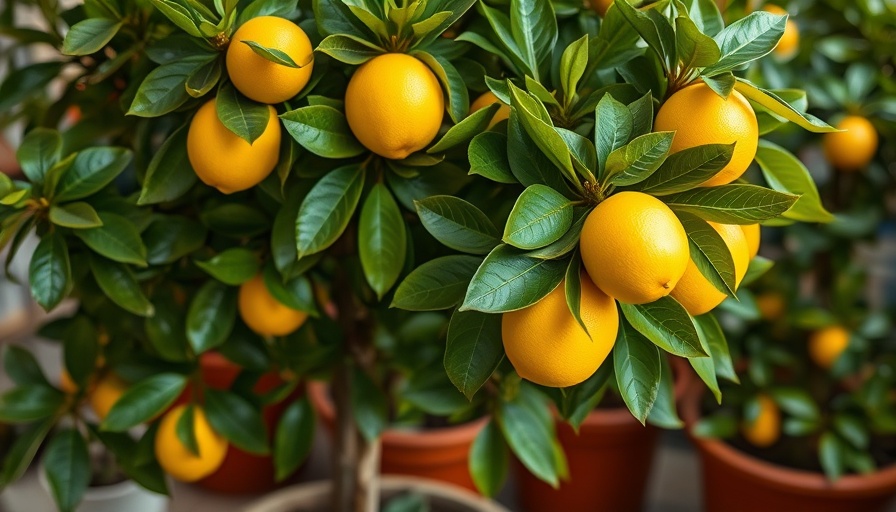
Embrace the Challenge: Growing Lemon Trees in Cool Climates
For many gardening enthusiasts, the idea of growing a lemon tree is synonymous with sunny backyards and tropical vibes. However, the dream of cultivating this vibrant fruit may feel out of reach for those living in cooler climates. Fear not! With a little creativity and some well-researched strategies, you can enjoy the unique satisfaction of nurturing a lemon tree even in less-than-ideal weather conditions.
The Sweet Rewards of Homegrown Lemons
Why bother? Homegrown lemons boast unparalleled flavor compared to their store-bought counterparts. Imagine the joy of plucking a fresh lemon from your very own tree, adding zest to your dishes, or whipping up a pitcher of refreshing lemonade right from your backyard! Plus, the pride that comes from growing something truly unique adds not just flavor but also a rich narrative to your gardening journey.
Creating the Perfect Environment: Tips for Container Gardening
Container gardening emerges as a solution for those not in warm climates. By placing your lemon tree in a pot, you can easily move it indoors during frost and create a warm spot for it to thrive. When selecting the right container, consider one that is at least 12-14 inches in diameter to allow for root growth, and use a well-draining potting mix enriched with organic matter.
Additionally, think carefully about your sunlight options! Lemon trees thrive when they receive eight to ten hours of sunlight daily. Position them near south-facing windows or use grow lights during the cloudy months to ensure they get enough light.
Winter Care: Protecting Your Lemons from the Chill
Winterizing your lemon tree is vital. If you live in a particularly cold climate, insulating your tree helps. Options include wrapping the pot with bubble wrap or burlap to trap warmth or utilizing string lights to provide gentle heating. When nights turn chilly, don’t hesitate to bring it inside or place it in a sunroom heated to around 55°F.
Additionally, monitor its watering needs during winter. Lemons need less water during the winter months, so overwatering can lead to root rot.
Cultivating Community Connections: Learning from Fellow Gardeners
Venturing into the world of lemon tree cultivation also connects you with a broader community of gardeners. Local gardening clubs and online forums are treasure troves of knowledge and encouragement. Engaging with fellow gardeners can provide insights into successful techniques, local resources, and even recipe exchanges, enhancing your overall gardening experience.
Expand Your Gardening Horizons: Experimenting Beyond Lemons
While growing a lemon tree offers numerous benefits, it also serves as a stepping stone for broader gardening adventures. Use this experience to explore the nuances of microclimates or even delve into other citrus varieties that might thrive in your area. The skills gained while nurturing a lemon tree can set the foundation for growing a diverse garden filled with seasonal fruits and vegetables.
Final Thoughts: The Heartwarming Connection to Gardening
As you embark on this journey of growing a lemon tree, remember: gardening is as much about the shared experiences as it is about the results. The joy of cultivation extends beyond taste—it deepens connections through shared stories, laughter, and community successes. So grab your gardening tools and embrace the challenge; the rewards are sweet, and the lemons are just a sunny spot away!
 Add Row
Add Row  Add
Add 




Write A Comment